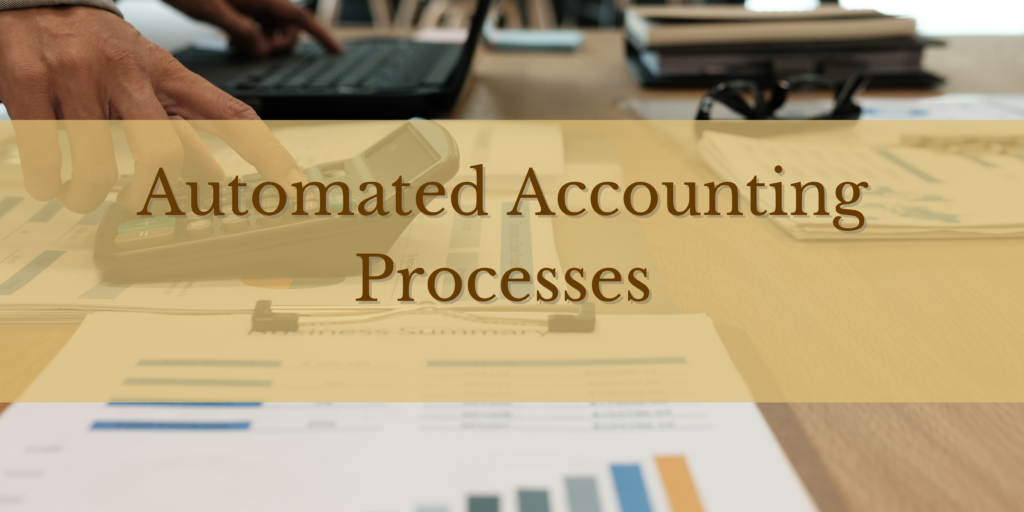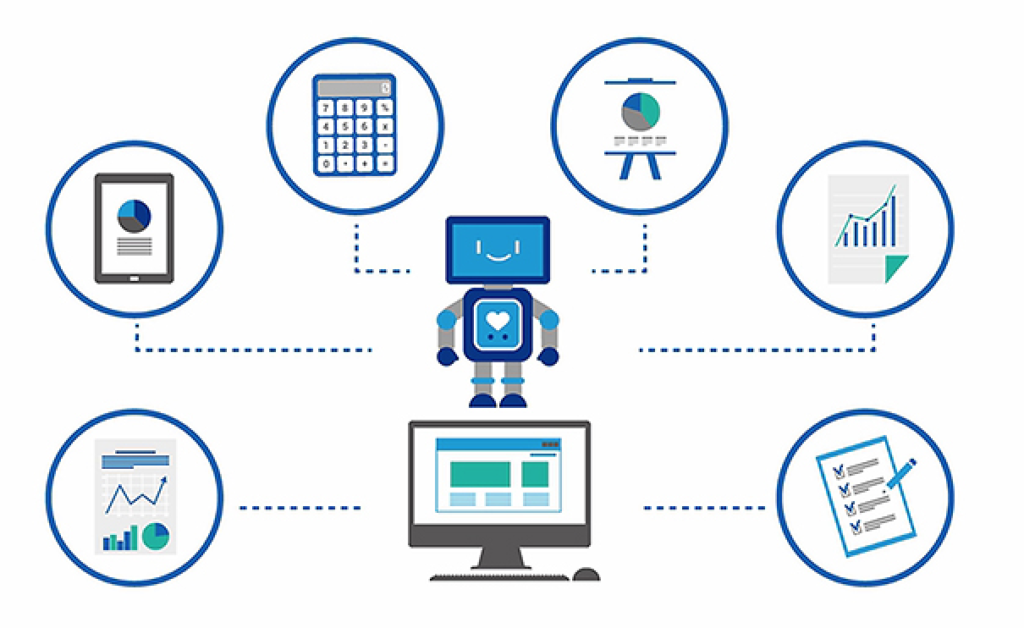
Automated Accounting Processes
Accountants have used software in one form or another for decades. Classics like excel are used to enhance all sorts of tasks. Despite countless software updates and new tools, the profession only made strides recently due to the introduction of automated accounting, a powerful tool for business owners to use when eliminating manual accounting issues. It is a software that allows you to automate the accounting process so that the most manual tasks are completed efficiently and instantly.

Automated accounting resolves many problems through a simple software solution. Some of the benefits it provides are:
- It is not time-consuming as compared to manual accounting.
- It prepares records for tax reduction.
- It allows fast retrieval of data.
- Systems ensure maximum protection by avoiding cyberattacks.
- Helps steer clear of a cash flow crisis.
Automation can eliminate up to 40% of losses caused by accounting errors. However, it is imperative to know which processes can be effectively automated, and which cannot. Below mentioned are four processes many that contain heavily repetitive and mundane tasks that don’t require much cognitive thinking to execute.
1. Month-end reporting
This includes closing the general ledger, reconciling cash accounts, adjusting allowance accounts, and calculating income tax provisions for the month, processes that occur routinely making it error-free.
2. Expense reporting
This can be easily automated with expense automation software or RPA through which the process of logging expenses, attaching the corresponding receipt to each expense entry, and checking the expense and receipts logs to verify their accuracy.
3. Payroll management
Tedious tasks like scheduling payments, calculating amounts and deducting and withholding as per contractual obligations take place frequently. They can be easily managed by RPA.
4. Invoice processing
The software would extract the invoice data and record electronic, and digital versions of the paper and email invoices. After which, through robotic process automation, relevant data from emails, log in to vendor applications, retrieve invoice information, and enter the data into invoice processing software.

The standard technologies used to automate such processes are
- SAP
SAP is an enterprise resource planning software used to manage production, sales, and accounting activities.
- Netsuite
Netsuite is a versatile cloud-based system used to automate business activities like managing inventory, tracking financials and customer help.
- Oracle
Oracle is an integrated cloud-based platform that offers database services to many of its users, and has unique retrieval tools for data retrieval.
The demand for operational efficiency, cost-effectiveness, and an increase in profit margins will always remain, creating an environment where the need for a suitable solution in bookkeeping departments continues to grow.
Accounting automation is seen by many as a potential answer.
